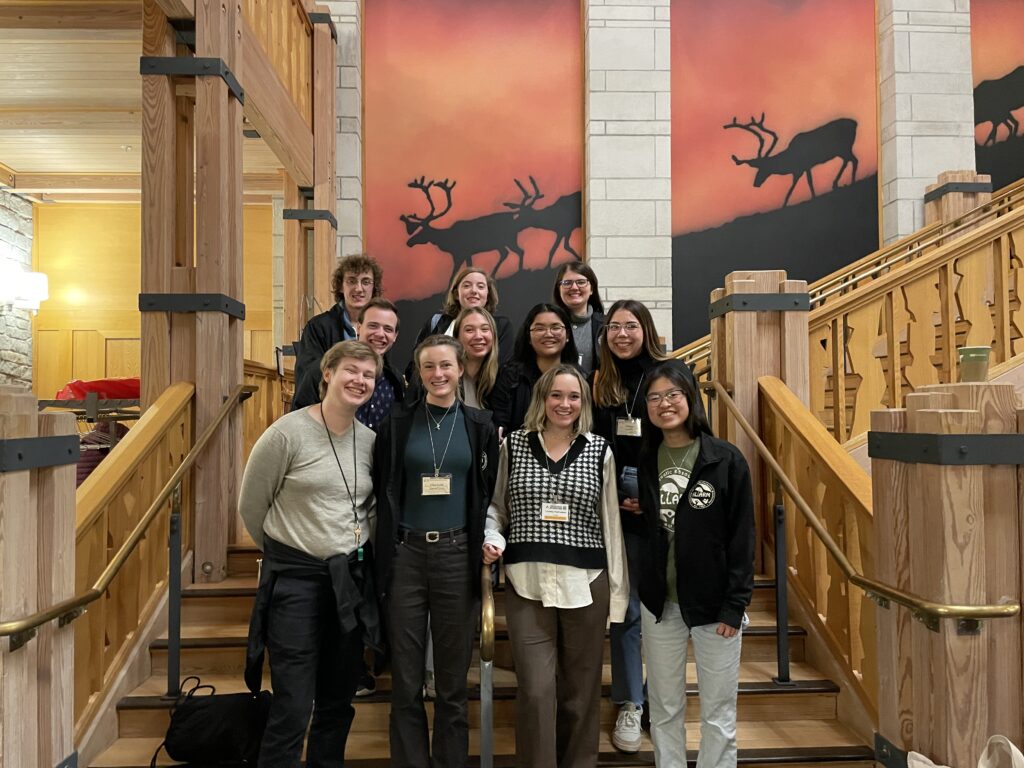At 6:30 am on Saturday, November 4th, ten student watershed coordinators and two full-time staff piled into a van to head to the Chesapeake Bay Watershed Forum in Shepherdstown, WV. The Chesapeake Watershed Forum is an annual watershed-wide event where restoration and protection practitioners gather together to share valuable information and discuss topics centered around a specific theme, which this year was “Private Investment in Sustainable Partnerships to Achieve Clean Water Goals.” After about two hours, we arrived at our destination and dove headfirst into a day full of informational sessions, important conversations, and meaningful connections. My day consisted of four sessions: Scaling Up Biochar in the Chesapeake, Native People Protecting Native Plants/Waterways, Organic Valley Sustainability in the Bay, and Bay Restoration Beyond 2025. Although each session contained a plethora of valuable information, one impacted me above all, Native People Protecting Native Plants/Waterways.
During this discussion I learned about everything from the uses of native plants, to the insect apocalypse, to current native activism. I learned how cattails can be used for food, medicine, fire starters, insulation, and weaving. I learned that since the 1970s, the United States has lost 50% of all insect species due to pesticides, habitat loss, and invasive species, leading to 3 billion fewer breeding birds. I learned about how medicine doesn’t have to be a pill you take, but can be anything that fuels your soul, like a walk in the woods. Perhaps most importantly, I learned about the value of stewardship over ownership, and the phrase Mitakuye Oyasin, or “We Are All Related.”
Stewardship is especially relevant to my work here at ALLARM. As an organization centered around community science and the protection of waterways, we emphasize the importance of being stewards of the environment. Instead of viewing nature as something that is ours to commodify and exploit, we view it as a resource to protect. This connects to the phrase Mitakuye Oyasin. The idea that we are all related is synonymous with harmony with all forms of life including humans, animals, plants, rivers, and mountains. To embrace this concept is to understand the interconnection of humans and nature. It helps us see ourselves as a part of nature, not above it, and understand that our actions as humans impact so much else in the world. These ideas are central to ALLARM as well as our role as humans on earth.
Overall, the Watershed Forum was a wonderful and enriching experience that gave me the chance to engage in important conversations in a professional environment. As we arrived back on Dickinson’s campus, I was definitely changed for the better!
